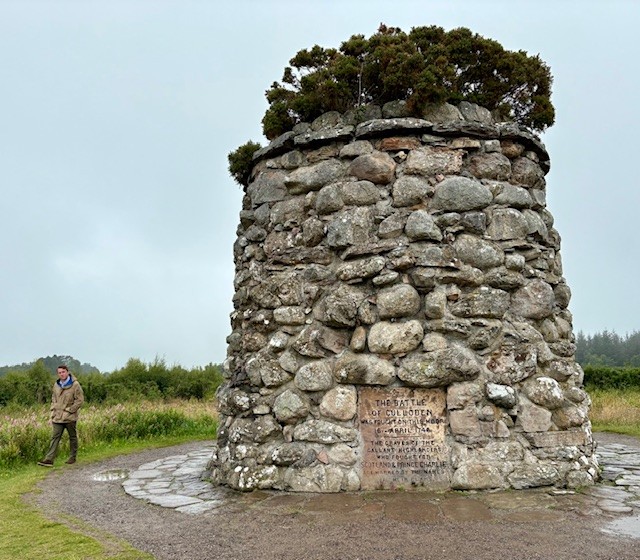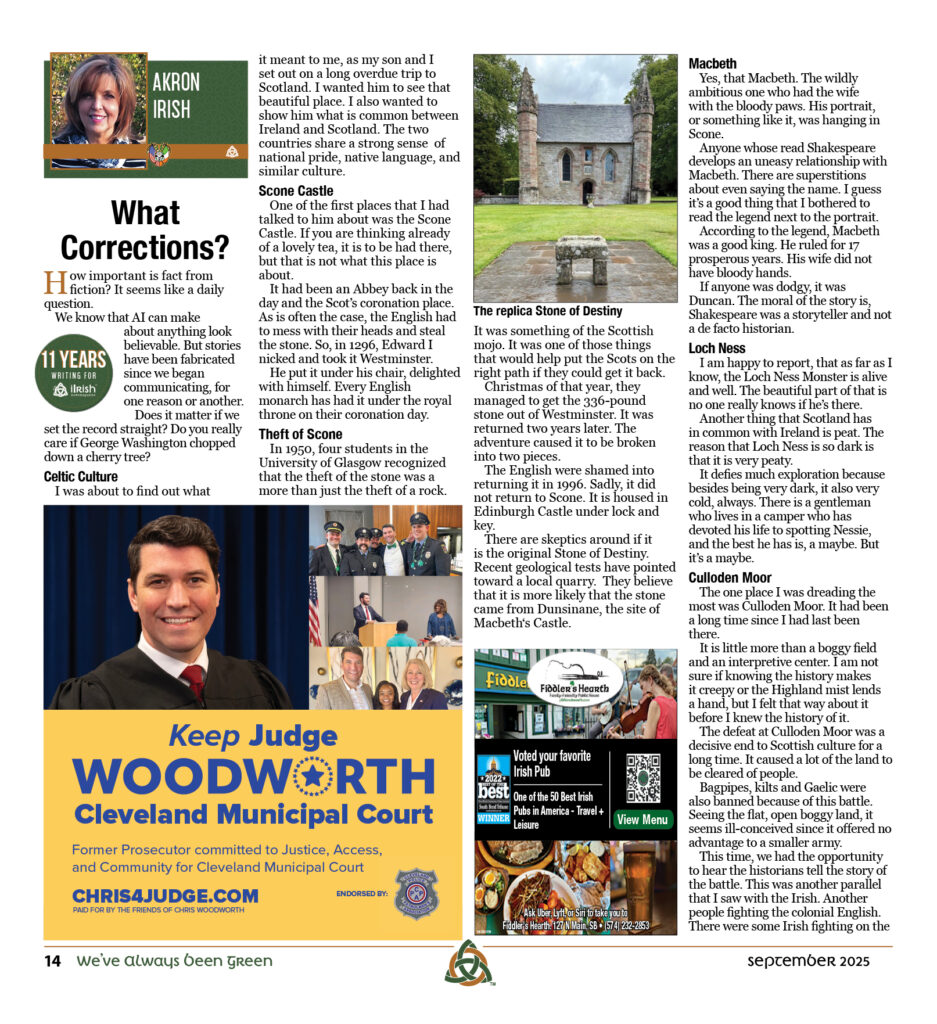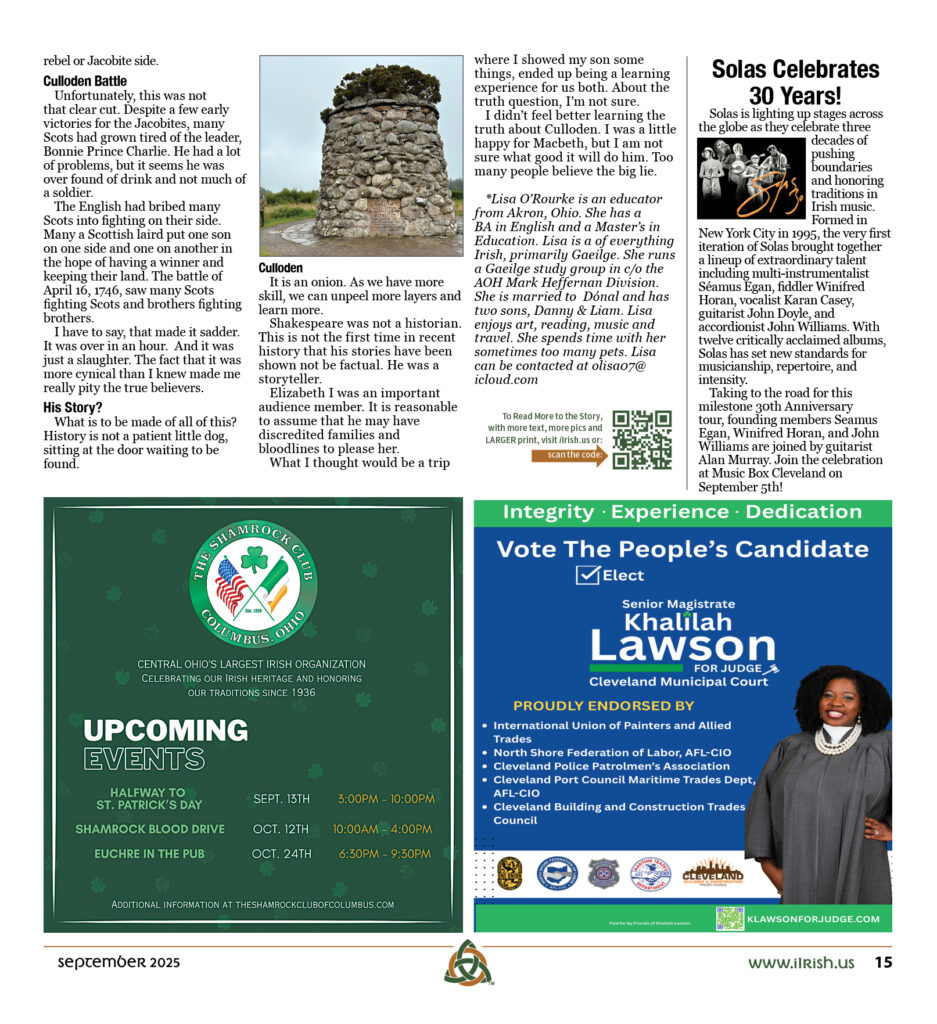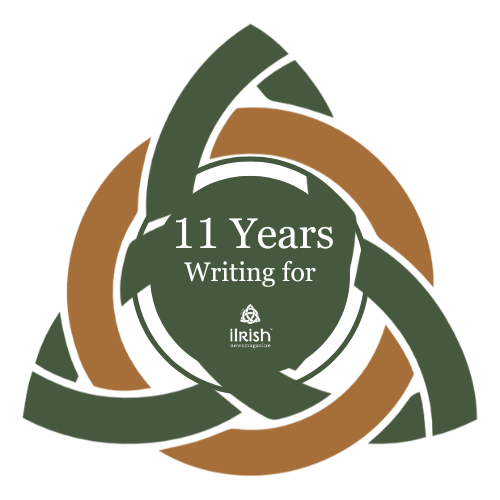
How important is fact from fiction? It seems like a daily question.
We know that AI can make about anything look believable. But stories have been fabricated since we began communicating, for one reason or another.
Does it matter if we set the record straight? Do you really care if George Washington chopped down a cherry tree?


Celtic Culture
I was about to find out what it meant to me, as my son and I set out on a long overdue trip to Scotland. I wanted him to see that beautiful place. I also wanted to show him what is common between Ireland and Scotland. The two countries share a strong sense of national pride, native language, and similar culture.
Scone Castle

One of the first places that I had talked to him about was the Scone Castle. If you are thinking already of a lovely tea, it is to be had there, but that is not what this place is about.
It had been an Abbey back in the day and the Scot’s coronation place. As is often the case, the English had to mess with their heads and steal the stone. So, in 1296, Edward I nicked and took it Westminster.
He put it under his chair, delighted with himself. Every English monarch has had it under the royal throne on their coronation day.
Theft of Scone
In 1950, four students in the University of Glasgow recognized that the theft of the stone was a more than just the theft of a rock. It was something of the Scottish mojo. It was one of those things that would help put the Scots on the right path if they could get it back.
Christmas of that year, they managed to get the 336-pound stone out of Westminster. It was returned two years later. The adventure caused it to be broken into two pieces.
The English were shamed into returning it in 1996. Sadly, it did not return to Scone. It is housed in Edinburgh Castle under lock and key.
There are skeptics around if it is the original Stone of Destiny. Recent geological tests have pointed toward a local quarry. They believe that it is more likely that the stone came from Dunsinane, the site of Macbeth‘s Castle.
Macbeth Yes, that Macbeth. The wildly ambitious one who had the wife with the bloody paws. His portrait, or something like it, was hanging in Scone.
Anyone whose read Shakespeare develops an uneasy relationship with Macbeth. There are superstitions about even saying the name. I guess it’s a good thing that I bothered to read the legend next to the portrait.
According to the legend, Macbeth was a good king. He ruled for 17 prosperous years. His wife did not have bloody hands.
If anyone was dodgy, it was Duncan. The moral of the story is, Shakespeare was a storyteller and not a de facto historian.
Loch Ness
I am happy to report, that as far as I know, the Loch Ness Monster is alive and well. The beautiful part of that is no one really knows if he’s there.
Another thing that Scotland has in common with Ireland is peat. The reason that Loch Ness is so dark is that it is very peaty.
It defies much exploration because besides being very dark, it also very cold, always. There is a gentleman who lives in a camper who has devoted his life to spotting Nessie, and the best he has is, a maybe. But it’s a maybe.
Culloden Moor
The one place I was dreading the most was Culloden Moor. It had been a long time since I had last been there.
It is little more than a boggy field and an interpretive center. I am not sure if knowing the history makes it creepy or the Highland mist lends a hand, but I felt that way about it before I knew the history of it.
The defeat at Culloden Moor was a decisive end to Scottish culture for a long time. It caused a lot of the land to be cleared of people.
Bagpipes, kilts and Gaelic were also banned because of this battle. Seeing the flat, open boggy land, it seems ill-conceived since it offered no advantage to a smaller army.
This time, we had the opportunity to hear the historians tell the story of the battle. This was another parallel that I saw with the Irish. Another people fighting the colonial English. There were some Irish fighting on the rebel or Jacobite side.

Culloden Battle
Unfortunately, this was not that clear cut. Despite a few early victories for the Jacobites, many Scots had grown tired of the leader, Bonnie Prince Charlie. He had a lot of problems, but it seems he was over found of drink and not much of a soldier.
The English had bribed many Scots into fighting on their side. Many a Scottish laird put one son on one side and one on another in the hope of having a winner and keeping their land. The battle of April 16, 1746, saw many Scots fighting Scots and brothers fighting brothers.
I have to say, that made it sadder. It was over in an hour. And it was just a slaughter. The fact that it was more cynical than I knew made me really pity the true believers.
His Story …
What is to be made of all of this? History is not a patient little dog, sitting at the door waiting to be found.
It is an onion. As we have more skill, we can unpeel more layers and learn more.
Shakespeare was not a historian. This is not the first time in recent history that his stories have been shown not be factual. He was a storyteller.
Elizabeth I was an important audience member. It is reasonable to assume that he may have discredited families and bloodlines to please her.
What I thought would be a trip where I showed my son some things, ended up being a learning experience for us both. About the truth question, I’m not sure.
I didn’t feel better learning the truth about Culloden. I was a little happy for Macbeth, but I am not sure what good it will do him. Too many people believe the big lie.





